Tags: Earth

Diamonds Are Made From Recycled Dead Organisms Found 400 Kilometers Below the Sea
Comet ATLAS: This Cosmic Flop Might Have Been a Spectacular Sight to Civilizations
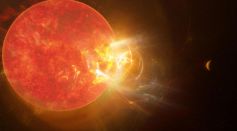
Solar Flare From Sun Might Be Heading to Earth; Should We Worry?
Why Was Pluto Demoted 15 Years Ago? Controversial Definition of Planets Disagreed by Some Astronomers
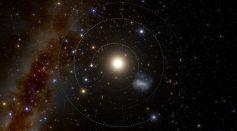
Will This Fastest Orbiting 0.6-Mile Wide Asteroid Found in Solar System Reach Earth?
Earth's Magnetic Field Have A 200 Million-Year-Long Cycle As Found From Rock Samples in Ancient Lava

NASA Classifies Asteroid Approaching Earth 'Potentially Hazardous'; When Does Near-Earth Object Become Threat?
Largest Carbon Reservoir: New Study Estimates Deposit in Earth’s Outer Core
Earth Destruction: Is This Really Possible? Black Holes, Volcanoes, Robotics May Negatively Impact the Planet in the Future
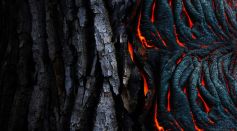
Supporting Evidence of Earth's 200-Million-Year Magnetic Field Cycle Discovered from Lava Flows
Jupiter in Relatively Large, Bright Sight When It Positions Opposite the Sun; Watch As It Happens on August 20
Jupiter Experiencing Energy Crisis for Decades, Global Heat Maps Created to Study the Problem
Solar System Estimated to Be Much Younger at 4.55 Billion Years Based on Magnetism Analysis
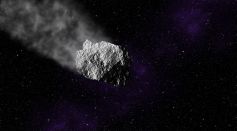
NASA's OSIRIS-REx Says Asteroid Bennu Has 1-in-1750 Chance to Make Near-Earth Approach in Next 300 Years

TikTok 'Time Traveller From 2714' Says Perseid Meteor Shower Will Last For 2 Weeks, Sparking Nozic War; Is This True?
16 Psyche Asteroid: NASA Sending 2022 Mission to $10,000 Quadrillion-Worth Metallic Space Rock to Study Its Origin
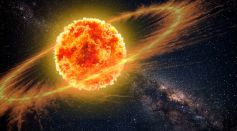
Nearby Star Resembles Young Version of Sun; Could Shed Light on How Life Began on Earth
US Tracking and Data Relay Satellite: SpaceLink To Improve International Space Station Comms

Is Earth’s Slowing Rotation Causing An Oxygen Surge? Lake Huron Sinkhole Might Have the Answer
Exoplanet 35 Light-Years Away from Earth Has 320 Degrees Fahrenheit Temperature; Hot Enough for Baking
Most Popular

Ocean Acidification, Marine pH Change, and CO2 Absorption: How Coral Reef Damage and Shellfish and Plankton Impacts Threaten Marine Life

Dark Matter Explained: What We Know, What We Don't, and How It Shapes Cosmic Structure

Memory and Learning: How the Brain Stores, Retrieves, and Forgets Information

Water, Carbon, and Nitrogen Cycles: How Biogeochemical Cycles Sustain Earth's Ecosystems




